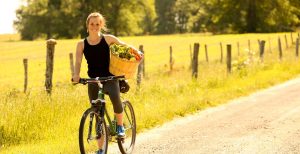
What Every Athlete Should Know About Mountain Climbing and Goal-Getting (Ellen Miller Interview)
I met Ellen Miller at the U.S. Trail Running conference in Estes Park, Colorado last year, and it’s been such a thrill to hear her wisdom and experience from years of adventure, athletic pursuits, and life enjoyed outdoors!
She’s a woman with some incredible accomplishments as an athlete and coach, and today on the blog I’m sharing our conversation about mountain climbing, goals, fear, self-doubt, and more, as part of the “Women Living Their Dreams on and off the Trail” series!
Ellen Miller is a USATF Certified Level 2 Endurance/Athletic Coach, and works as an Outdoor Fitness Coach in the Vail Valley. She is the Coach/Manager of the US Women’s Mountain Running Team.
She was the first American woman to climb Mt. Everest from both Nepal and Tibet 2 (1 of 6 women in the world to date) and she works guiding treks and climbs in the Himalaya. Beyond her extensive climbing resume, Ellen has also climbed other Himalayan 8000-meter peaks Lhotse, Cho Oyu, and Manaslu in 2010.
In 2013, she became the second woman in history to climb Nuptse, and complete the “Everest Trilogy.’ In 2002, she was voted Colorado Sportswoman of the Year for longevity and achievement in athletics. Ellen takes pride in helping people at any ability level, reach their potential in fitness and wellness. As a bi-lateral hip replacement recipient, she supports and encourages other aging athletes to continue their pursuit of passion in sports.
Let’s dive in and hear from Ellen on mountains, climbing, and making it to the top!
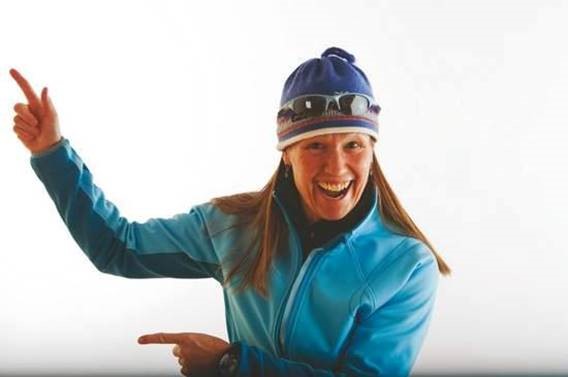
You say that beginner and elite athletes share one thing in common, and that is self-doubt. Yet you say it doesn’t have to be a negative thing. Why?
In my experience with elite mountain runners, it’s almost like self-doubt is a mechanism so that people step back and assess their gear, training process, and mental state, before they step up to the start line. It’s a mechanism that gets us to go over the checklist again. In that way I think it’s very useful. I think physically, fear and self-doubt, invites us energetically into a different space. For example, if an athlete has fear over climbing a mountain or running a race, I think there’s something beneficial to it. It doesn’t have to be all negative. I think it infuses more adrenaline into the body before the event, encouraging athletes to perform better. On the other hand, sometimes athletes have such a deep lack of confidence and fear that they’ll choke.
“Fear and self-doubt are always there. You just have to harness it so you can turn it into something positive.”
– Ellen Miller
(click to tweet)
When have you had to turn self-doubt or fear into an advantage in your life?
Extreme high altitude climbing and multi-day adventure racing. I used to be terrified, but that energy and feeling in my nervous system boosted my enthusiasm and kept me much more alert and aware. I can’t see getting through a 5 or 9 day race without a little doubt or uncertainty because I think it turns out to be a positive thing for you. Often times you have to really have a chat with yourself, though. For example, I was on the north side of Mt. Everest and I really thought I was done because I was so cold and the wind was so high. None of my teammates were really in site. I called my expedition operator on the radio and told him I was done. “I’m freezing, struggling, and feel like I’m going to get blown off this mountain.” There was a long silence on the radio and the next two words I heard from him were, “Get up.” He told me to take one step, and I did. Then he told me, “Take another.” He talked me through it, but I think from that, I’ve learned to tell myself that during the times that are the darkest and I’m really doubting that what I’m doing is possible. It just took someone else believing in me and encouraging me, for me to take those steps forward.
How do you stop negative self-talk when it starts to happen?
I think as people age and have more experience, the neural pathways created in your brain change, and you can change priorities. You’ll be able to step out of your behavior more and put yourself more in the place of being an observer. People are not their feelings. Emotions pass through us, and come and go. It takes maturity for an athlete or anybody to step out of that, and to say, “I am not feelings of anger. I am not my feelings of fear right now. I’m just experiencing these emotions as temporary feelings. They’re going to pass, shift, and flow in and out.” Knowing they’re going to pass, shift, and flow in and out is key. By getting into the habit of that, it kicks off new neural pathways and changes your response to those emotions. One thing I always tell athletes is that they are in charge of creating their own neural pathways and how they respond to the world. People can either view things through dark eyes, negativity, and fear – or “this is a challenge but maybe it’s an opportunity and I’m going to learn and grow.” I’ve found as people can observe their behavior more, they can become different people.
What’s the first thing you did to prepare for a goal like climbing Mt. Everest?
It was a 25 year process. People now often want things so quickly, and it wasn’t instant gratification for me at all. I started as a young woman climbing all the 14ers in Colorado, then to Mexico to climb the volcanoes, and then to Alaska to climb Denali. It was a long process where I gained a lot of experience and did a lot of climbing. I had climbed 8000 meter peaks in the Himalaya before I decided to ever go to Mt. Everest. I think the first step is believing that you can, but it took me 25 years before that to believe I could.
Why did you start mountain climbing?
The beauty of the mountains. That’s the great thing about mountain climbing is that it’s not a competitive sport. The people either love the mountains and the sport, and they’re passionate about it, or they’re not. I was just going up into the mountains because it made me happy. These days it’s become a bit more competitive, but I’ve never seen it that way. I’ve never done it to prove anything. I’ve done it because I love to climb.
If you passed another runner on the trail, and only had a few minutes to give them your best tips, what would it be?
Enjoy! Have fun! Take in the beauty!
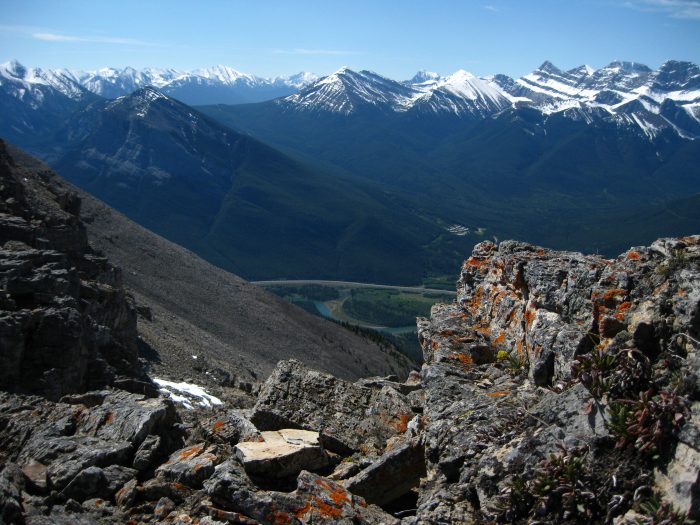
Have there been similarities and parallels for you between pursuing goals in mountain climbing or as an athlete, and other goals in life?
My methodology is deliberate. I don’t like drama. I don’t like false starts. I don’t like it when people run out of the gate too fast and burnout. I’m really methodical with everything I pursue. I think in my younger years I made mistakes, moved too fast on projects, didn’t do all my homework, and didn’t get all the experience I needed. In the end, it’s ends up being a big waste of time, energy, and money. I think my whole thing as I’ve gotten older is slow down, make sure you’re doing what you want to do, make sure it’s resonating and being well-received. I think it’s my personal style. I have so much respect for young entrepreneurs, but some aren’t making any money after years, and I think sometimes you have to be realistic and ask yourself, “is this really working or not?” Sometimes when you start projects or programs and you have to realize it’s not taking off and be willing to take a different direction.
What does “living your dreams on and off the trail” mean to you?
It’s everything because that’s the point of life. Having goals and having dreams is why we’re all here. I’m pretty dedicated to honoring my dreams, goals, and desires – and balancing that with giving back. I realize I’ve been deeply blessed and it’s much more about giving back for me now. I do occasionally come across people who don’t have much ambition and don’t have their own goals and dreams, and it makes me sad.
“There’s so much more to life than just going through the daily grind. We’re built for more than that.”
– Ellen Miller
(click to tweet)
5 Things Every Athlete Should Know About Mountain Climbing and Goal-Getting
- You can harness self-doubt and fear, and turn it into something positive.
- Reaching your goals takes time and deliberate planning.
- You are in charge of how you respond to the world.
- Get up. Take a step. Take another.
- Always enjoy, have fun, and take in the beauty.
Thank you so much Ellen!
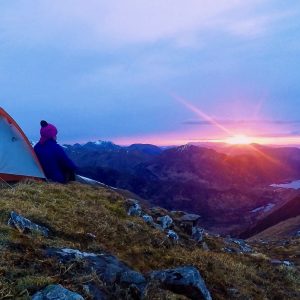 Previous Post
Previous Post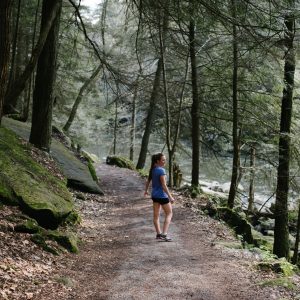 Next Post
Next Post

